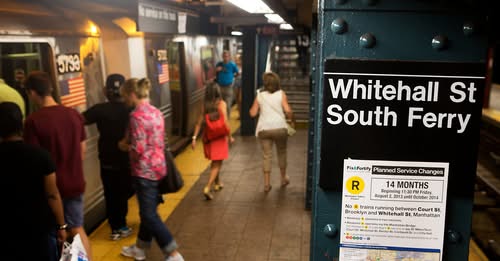The Last Stop: A Tragedy on the Tracks
The train came to a halt just before dawn—an unscheduled stop that, at first, raised eyebrows among the few early commuters waiting on the platform. No one aboard had expected anything unusual. It was just another morning, the kind that quietly folds into the rhythm of a busy city. But when the conductor walked through the nearly empty car and discovered the body of Jorge Gonzalez, lifeless and slumped in his seat, the day veered into something far darker.
Gonzalez, a 42-year-old community volunteer and father of three, had boarded the train hours earlier, according to surveillance footage. There had been nothing visibly wrong. He greeted a fellow passenger with a nod, tucked a worn leather notebook into his coat pocket, and closed his eyes. When his body was found, the medical team would later determine he had died of natural causes—an undiagnosed heart condition that had quietly stolen his life while the train hummed along its route.
But the heartbreak of losing Gonzalez did not end there. What followed, captured in grainy but damning detail by security cameras, shocked the city and ignited public outrage.
Within minutes of the train’s unexpected stop and before transit authorities or police had arrived on scene, another man stepped onto the car. Felix Rojas, known to local law enforcement for petty theft and transient behavior, boarded alone. At first, he appeared to notice the still figure in the seat but did not raise any alarm. Instead, he approached Gonzalez’s body with calculated steps. He searched through the man’s pockets, pulling out a wallet and other small possessions, unaware—or perhaps unconcerned—that every movement was being recorded.
Then, in a moment so grotesque it left seasoned investigators shaken, Rojas committed a brutal act of violation against Gonzalez’s lifeless body. Alone in the train car, he acted without pause, without fear, and without a soul nearby to intervene.
The footage, though never released to the public, was enough to prompt an immediate and urgent manhunt. Authorities released Rojas’s image from earlier security video, and within hours, calls came in from witnesses who had seen him near the station or recognized him from their neighborhood. By nightfall, he was in custody.
The city held its breath.
For Jorge Gonzalez’s family, the discovery of his sudden death was already a cruel and unthinkable blow. But to then learn of the postmortem violation—a desecration of their loved one in his most vulnerable moment—compounded their grief into something unbearable. “It’s like we lost him twice,” one relative said through tears at a candlelight vigil held in his honor. “Once to fate. And again to cruelty.”
Public reaction was swift and visceral. Vigils and memorials sprang up across the city. Flowers and handwritten notes appeared at train stations, many marked simply with Gonzalez’s name and the words “You deserved dignity.”
Police Chief Angela Martinez held a press conference, her voice firm but cracking at moments. “We want the Gonzalez family to know that justice will be pursued to the fullest extent of the law. This city stands with them. What happened is not just criminal—it is inhuman.”
Felix Rojas now awaits trial, facing a slate of charges including desecration of a human corpse, theft, and other felony violations. Prosecutors have made it clear: they intend to make an example of the case, not out of vengeance, but out of a desperate need to reassert the boundary between civilization and savagery.
The case has also reignited debates about public safety on transit systems, the treatment of the mentally ill and homeless in urban areas, and how society fails both its victims and its perpetrators.
Yet, amid the public discourse and media cycles, one truth remains immutable: Jorge Gonzalez boarded a train and never made it home. He died in peace, but his memory has been stained by horror.
Still, his family chooses to remember the man he was—a mentor, a father, a husband, and a helper to those who had little. “He lived a life of compassion,” said his eldest daughter during the eulogy. “We refuse to let his last moments define his legacy.”
In the still silence of the train’s final stop, something more than a man was lost. And now, a city mourns, grapples, and hopes that in the pursuit of justice, dignity may yet be restored.

Leave a Reply